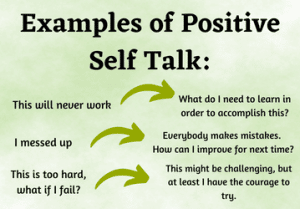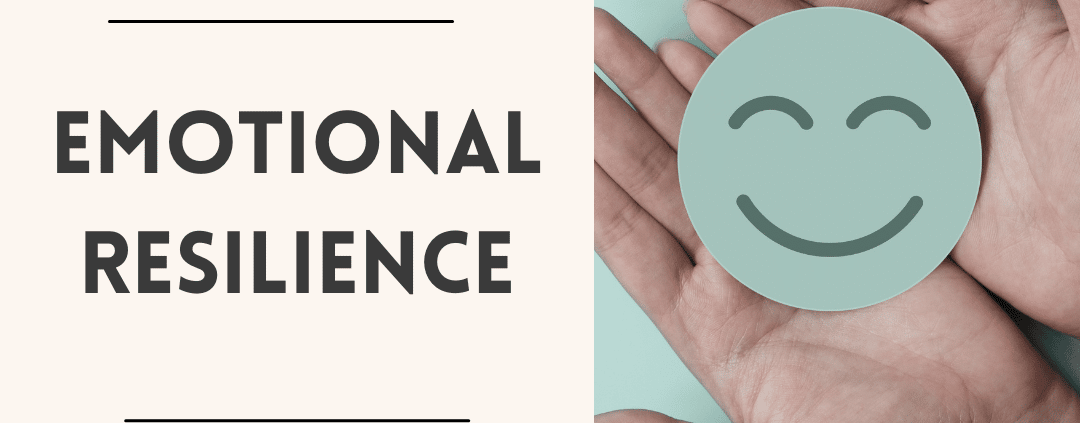Emotional Resilience
 Emotional Resilience and Stress – What is the Difference?
Emotional Resilience and Stress – What is the Difference?
Emotional resilience is the ability to cope with stress and setbacks. It’s about bouncing back from difficult experiences and maintaining a positive outlook. Stress, on the other hand, is a response to a challenging situation. It’s the body’s way of preparing for fight or flight. While some stress can be beneficial, too much can lead to anxiety, depression, and other health problems.
What are the characteristics of resilient people?
Resilient people are those who are able to adapt to and recover from difficult life experiences. They possess a number of qualities, including a positive outlook, a sense of humor, flexibility, and a willingness to learn from their mistakes. Basically, resilient people are also able to draw on their support systems – family, friends, and community – when times are tough.
Take small steps to increase your emotional resilience.
When it comes to increasing your emotional resilience, it is important to take small steps. This is because big changes can be overwhelming and can lead to more stress. Instead, focus on making small changes in your daily routine that will add up to big changes over time. For example, start each day by taking a few moments to yourself to practice deep breathing or meditation. This can help to center yourself and lower your stress levels. Make sure to also schedule time for activities that make you happy, such as spending time with friends or pursuing a hobby. By taking small steps to increase your emotional resilience, you will be better equipped to handle stress and setbacks.
The importance of developing emotional resilience.
It is important to develop emotional resilience in order to cope with the challenges and stresses of life. When we are emotionally resilient, we are able to quickly recover from setbacks and adversity. We are able to cope with difficult emotions and situations. We are also able to find meaning and purpose in our lives, even in the midst of difficulties.
Developing emotional resilience is not easy. It takes time, effort, and practice. However, it is worth it! When we are emotionally resilient, we are better able to deal with the challenges and stresses of life. We are also able to live happier and more fulfilling lives.
Emotional Resilience Factors: Emotional Agility
There are several emotional resilience factors that are important for individuals to develop in order to effectively cope with stress and adversity: emotional awareness, awareness of others and emotional flexibility
Self-Awareness – How well do I know myself?
Key characteristics of Self-Awareness:
- Being mindful and curious about your thoughts and emotions
- Noticing your self-talk – listening to what you’re saying to yourself
- Validating your thoughts against reality
- Challenging unhelpful and inaccurate thoughts
- Affirming helpful and empowering thoughts
- Being aware of the relationship between your thoughts, emotions and behaviours
- Having an accurate and realistic view of your strengths and possible weaknesses
- Being open to feedback and showing a willingness to change
Awareness of Others – How well do I read others and facilitate better relationships?
Key characteristics of Awareness of Others:
- Ability to ‘speed read’ others
- Understanding others perspectives
- Showing consideration for others
- Controlling emotions to avoid damaging relationships
- Recognising the impact of own behaviour on others
- Ability to manage conflict
Emotional Flexibility – How well do I assess the context I’m in and effectively adapt my responses?
Key Characteristics of Emotional Flexibility:
- Reading situations quickly
- ‘Tuning up’ and ‘tuning down’ behaviours effectively and authentically
- Adapting (emotional responses in) to demanding situations and challenges
- Knowing how to manage emotions and behaviours to get the most out of situations
One of the best ways of learning about emotional awareness and emotional self-regulation is to use ground-breaking psychometrics which reveals your dynamic personality and helps increase emotional intelligence. Emotional Intelligence is the capacity to be aware of, control, and express one’s emotions, and to handle interpersonal relationships judiciously and empathetically. Emotional intelligence is the key to both personal and professional success. You will see many elements of this is the description of emotional agility above. We provide coaching on increasing your potential using emotional intelligence. To find out more take a look here.
 How to be Resilient in Difficult Situations?
How to be Resilient in Difficult Situations?
In today’s world, it’s more important than ever to know how to be resilient in difficult situations. Certainly, with so much uncertainty in the world, it’s essential to have the ability to bounce back from setbacks and challenges. Here are some tips for how to be resilient in difficult situations:
- Firstly, believe in yourself. One of the most important aspects of resilience is self-belief. However, when you believe in yourself, you are more likely to persevere through difficult times.
- Secondly, stay positive. It’s important to maintain a positive outlook, even when things are tough. This positive attitude will help you maintain hope and motivation. Be proactive. Don’t wait for things to happen, make them happen. Take control of your life and your situation. This will help you feel empowered and more capable of dealing with difficult times.
- Thirdly, be resilient. This one might seem obvious, however, it’s important to remember that you are resilient. You have the ability to overcome challenges and come out stronger on the other side.
By following these tips, you can develop the resilience you need to thrive in difficult situations.
With everything that happens in life, it’s important to be armed with the tools you need to feel balanced. We hope that this blog post was able to offer you some insights into emotional resilience. We’re always happy to hear from you, so if you have any questions or comments, please feel free to reach out to us anytime. Thanks for reading – we look forward to hearing from you!
If you would like to find out more about building resilience through coaching please visit our personal resilience page by clicking here.



